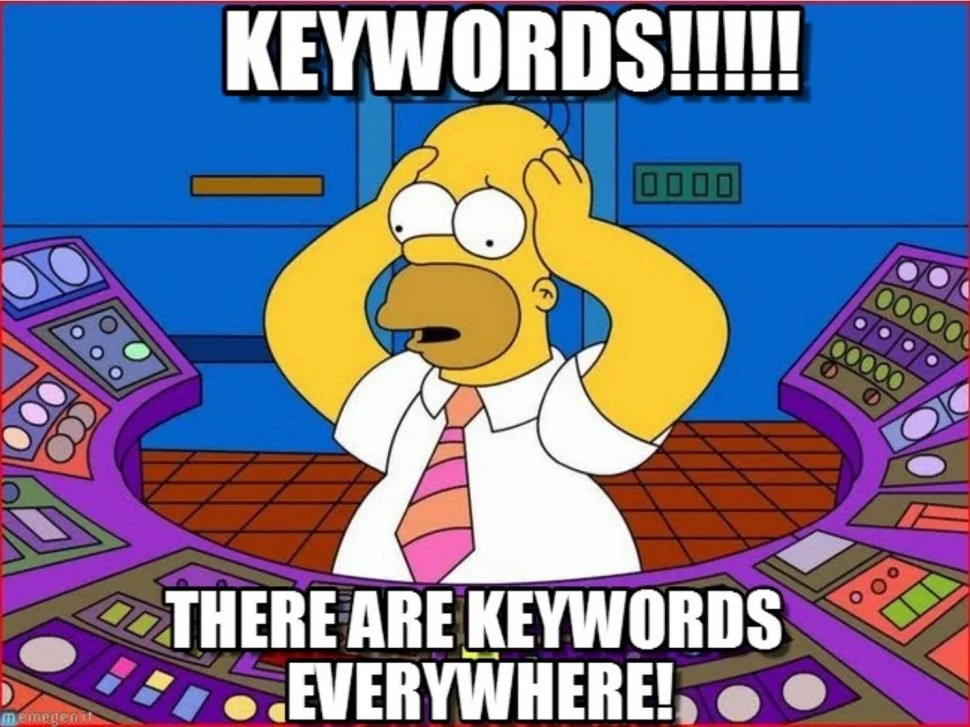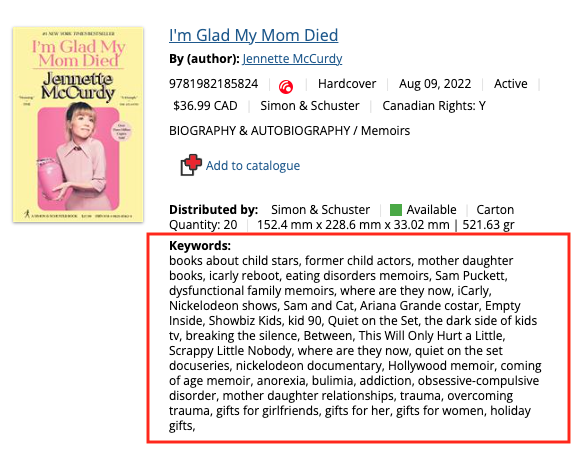At BookNet, metadata is at the core of what we do. With so much of it flowing in and out of our products and services, we’ve seen it all. In this blog series, we'll share each of the common issues addressed in Improving your metadata: Common issues and how to fix them, the Tech Forum presentation where eight BookNetters walk you through some of the most common issues we see in publishers’ metadata, highlighting what metadata standards are recommended for each case, and showing you how to fix these common problems.
Why is this important? Accurate, high-quality metadata ensures your books can be discovered in today’s competitive marketplace. Join us as we help you optimize your metadata to unlock its full potential!
The issue: Using keywords that have no direct relation to the book content
Did you know that in 2024, 54% of all book purchases made by Canadian book buyers were made online? In today’s marketplace, readers often search for books online. Most of the time they use terms related to content, themes, or plot elements rather than just the title or author. Without proper keywords, your books may get lost in the vast sea of online offerings.
Why is this an issue?
Keywords might be invisible to consumers, but they play a crucial role. When used effectively, they supplement (but not repeat) publicly displayed data, enhancing a book's discoverability on online platforms. When keywords are missing, irrelevant, or manipulative, several problems arise:
Readers can't find your books when searching by topic, theme, or character.
Irrelevant books appear in search results, frustrating potential buyers.
Books with similar subjects aren't properly differentiated.
Manipulative keywords that reference unrelated popular titles or authors (Harry Potter, Dan Brown, etc.) can violate retailer terms of service.
What BookNet recommends
1. Use natural language
Choose keywords that potential readers would actually use when searching:
Avoid publishing industry terminology unfamiliar to consumers.
Include character names, locations, plot themes, and genre terms.
Consider all variations of phrases users might search (e.g., "World War 2," "Second World War," "WWII").
2. Supplement existing metadata
Don’t duplicate information already present:
Don't repeat information found in titles, descriptions, or author fields.
Avoid using keywords for data that belongs in other fields (e.g., format information should use proper format codes, not keywords).
Remember that space is limited; make every keyword count.
3. Follow industry standards
In ONIX, keywords are supported in four distinct keyword lists: normal, not-for-display, for character or names-as-keywords, and, finally, one dedicated to place references.
The largest online retailer, Amazon, uses Subject scheme identifier code 20, which is applicable in both ONIX 2.1 and 3.0 data. The others are used and are recommended for their focused purpose, but be aware that Key place names are restricted to ONIX 3.0 use only.
If you have questions about the extended list, contact our standards team for more information.
4. Make a sustainable, long-term plan
Start by reviewing keywords for your upcoming and best-selling titles. Check that they follow best practices. Consider consulting with your trading partners about what they support and their limitations.
Remember that while keywords aren't visible to consumers on most retail sites, they do appear on BookNet Canada products like CataList and Bibli-O-Matic.
Need help? Don't hesitate to reach out to the BookNet team with specific questions.
The complete slide deck and transcript from this session are available here.
To stay up to date, subscribe to our weekly newsletter, eNews, where we share news about upcoming events and webinars, infographics and new research, updates on industry standards, links round-ups, and more.

















Tips on providing appropriate keywords in your metadata.